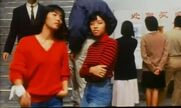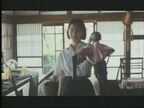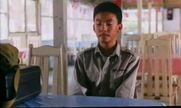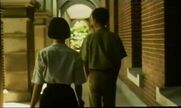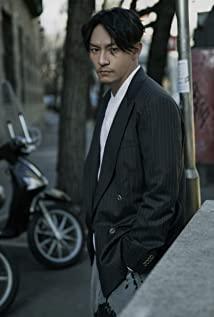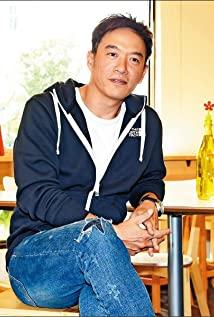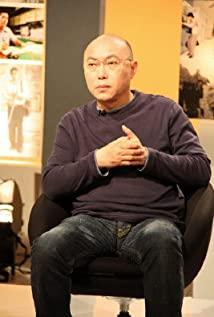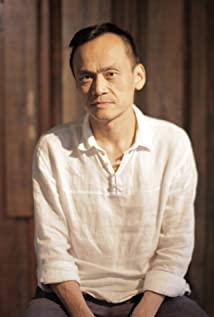. Hua Yiwen Institute of Applied Media Arts, National Taiwan University of Arts .
The
so-called modernity is to become a part of a world, In this world, in the words of Marx, "everything that is solid vanishes". (Marshall Berman, 1982)
Preface
: What is modernity?
Yang Dechang is considered a "thinker of urban culture." (Huang Jianye, 1995, p. 139) In his films, all he talks about is what happens in the city. Yang Dechang focuses on the description of the life of urbanites, perhaps with his personal background, but more importantly, he wants to express the serious issue of human experience of "modernity".
However, what is "modernity"?
Harvey (David Harvey, 1990) believes that Marx was one of the first people to put forward the concept of "modernity". In the "Communist Manifesto", Marx pointed out that after the emergence of the bourgeoisie, the continuous changes in the mode of production caused constant turbulence in social relations. This permanent instability and change is what differentiates the bourgeois era from all previous eras. "All fixed old relationships, with their venerable notions and opinions to them, are eliminated. All newly formed relationships become old before they are fixed. All fixed things vanish, all sacred Things have been desecrated. People finally have to look at their status in life, their relationship with each other with a sober eye.” (Translated by Yan Jia, by David Harvey, 2003, pp. 133-134)
. Berman (Marshall Berman, 1982) pointed out that the so-called "modernity" is to find human beings in an environment that allows people to change themselves and the world, "but at the same time it threatens Destroy everything we have, destroy everything we know, and destroy everything we show.” Berman pointed out that the experience of modernity spans nation, class and nationality, so to speak, unites all human beings together, but this kind of Unification has thrown humanity into a maelstrom of misery. (Translated by Xu Dajian et al., 2003, p. 15)
Frisby (David Frisby, 1985a) believes that "modernity" has a discontinuous temporal meaning, "it is a rupture with tradition, a sense of novelty and A keen sense of the transience of life, through which we perceive the transience and contingency of real life.” (quoted from Liu Jingming, Mike Featherstone, 2000, p. 6)
. (Zygmunt Bauman, 1995) describes it as a "pilgrim" life. He believes that the meaning of people's life in the world is realized through wandering the world, and people turn life into a pilgrimage to the place of meaning. "This 'introduction' of meaning is called 'identity building.' The pilgrim and the world he walks in gain meaning through each other simultaneously." (Translated by Yu Jianxing et al., 2002, p. 92)
. Jameson, 1997) pointed out that Benjamin once divided the development of history and culture into three stages: "First, the traditional rural society and the corresponding way of storytelling in the pre-capitalist era; then the capitalist giant industrial city. The rise of modernism and the language and poetry of modernism under the shock of its unnatural forces; finally, the high development of science and technology in the twentieth century, when even the tension and pain of modernism have disappeared, and film has become The dominant media.” (Translated by Chen Qingqiao et al., 1997, pp. 314-315)
As for the development of "modernity" in China, it is obviously later than the West. Li Oufan believes that it began in the early 20th century, "it is an intellectual theory attached to the imagination of the nation-state generated under its influence, and then turned into urban culture and the imagination of modern life." But he also pointed out that, In fact, the construction of this modernity has not been completed. The reason it was not completed was the CCP revolution and the Kuomintang-Communist civil war. Li Oufan believes that China from the beginning of the twentieth century until the successful revolution of the Communist Party of China, until the "four modernizations" are all extensions of "modernity". (Li Oufan, 2002, pp. 88-89)
To sum up, the emergence of "modernity" is to announce the fundamental shake of tradition, and people must live in turbulence. The themes of lamenting the unavailability of a stable life and the loss of tradition also run through all of Yang Dechang's films.
"Guling Street Teenage Murder Case"
The title card: "Around the 38th year of the Republic of China, millions of Chinese moved to Taiwan with the Nationalist government. The vast majority of these people, just for a share A stable job is for a stable growth environment for the next generation.” . . . "
Guling
Street" is actually talking about three levels of issues in the whole film:
1. New immigrants move to new residences the problem we are facing. (Individual)
Second, the control of the people by the state apparatus. (Country)
3. Human's experience of "modernity". (All human beings)
And these three questions are actually related to each other for the characters in the play. They have to leave their hometowns because they obey the leadership of the state apparatus. They have a strong sense of insecurity because they arrive at a new place of residence, and they experience the modernity more sensitively in which "everything that is solid vanishes into thin air". In order to prevent the possible subversion of modernity, the state apparatus imposes a reign of terror.
According to Li Oufan, the development of China's "modernity" is related to the country's imagination. Therefore, the Kuomintang government's retreat to Taiwan proved the failure of their "modernity" development line in China.
Although the Kuomintang government emphasizes revolution, it is actually deeply conservative. This can be seen from the official implementation of the "Chinese Cultural Revival Movement" at that time, which labeled the CCP as a "national scum" that destroyed Chinese cultural traditions, and wanted to restore the inherent ethics by using it. It can be seen that morality is used to defeat the CCP regime.
The appearance of the garrison headquarters in the film is a symbol of the state machine constantly guarding against possible subversion of "modernity". The Kuomintang government feared the Communist Party, which was more modern than it, so catching bandits and spies became another metaphor for suppressing modernity.
However, this group of people who were brought to Taiwan by the Kuomintang government, after escaping the development of China's modernity, still had to face another modern experience in Taiwan.
Yang Dechang in this film, detailed textual research on the utensils and furnishings belonging to the time, just showing the signs of Taiwan's society into modern times. Everything from tape recorders, Western songs to airplanes are all symbols.
and all the objects that symbolize modernity in this film are foreign, not the United States or Japan. The only radio I bought from a Shanghai department store was also good and bad.
film, this group of people faced a difficult situation, they left their hometowns, lost most of their traditions, leaving only memories of the past. Their sense of security must be satisfied through their dependence on the state apparatus, but their own instinct to struggle for survival requires them to keep making progress, and thus all kinds of struggles arise.
The national system is expressed through three symbols: the school, the garrison headquarters, and the chariot (army). They are all closed and repressive institutions.
In the film, these teenagers are deeply affected by the environment and the insecurity of their elders. So there are so many brawls. When people feel insecure, they call their friends for comfort.
The father of the protagonist Xiao Si in the film is the embodiment of tradition. He speaks of principles and loyalty, in contrast to his friend Wang Gou. Xiao Si used his father as an imitation object, but after his father was interviewed by the police chief, he behaved erratically, and his role as a model was shattered. This has a huge impact on the fourth.
Xiao Si suffered three shocks in the play:
1. Honey, a hero in his peers, was killed, making him face the shadow of death.
Second, the traditional image of the father was shattered and became a failure.
3. Xiao Ming, the lover in his dreams, turned out to be a woman who was sloppy in the mouths of others. His sacred sense of love was desecrated.
Xiao Si could not bear this kind of external change, and murder became his only way out.
At the end of "Guling Street", Xiao Ming was loved by his good friend Xiaoma Hengdao. Xiao Si wanted to develop another relationship with a dissolute girl, Xiao Cui, but the two had the following dialogue:
Xiao Si: I went to see Slick last night, and his whole person has changed. People can still change, and I get a very comforting feeling. Can we be good together? I may be able to give you a sense of comfort, do you feel the same way?
Xiaocui: Are you serious? Haven't you always looked down on me a little bit? Do you really want to change me now... I'm very comfortable like this every day, and you? What if I don't change it? Are you ignoring me? You are so selfish, why are you?
Xiao Cui not only refused Xiao Si's request, but even told him that Xiao Ming was more playful than her.
full of resentment, Xiao Si took the knife left by the Japanese woman to seek revenge on the pony, but unexpectedly met Xiao Ming. Xiao Si also tried to persuade Xiao Ming to turn back, and expressed that she could forgive her previous behavior.
small four: Because only I know, only I can help you, I am your only hope now. Just like Honey before, that's why you can't forget Honey. Because now I am Honey.
Xiao Ming: You mean to help me to change me, is not it? How are you like everyone else? I misunderstood you. You are the same as those people. If you are good to me, you want to exchange my feelings for you with me, so you can feel at ease, right? You are too selfish. Want to change me? I am just like this world, this world will not change, who do you think you are?
Xiao Ming said here, angry Xiao Si stabbed her stomach with a knife. When Xiao Ming slowly lay down from his arms to the ground, Xiao Si realized that he had made a big accident. But what he said was strange.
small four: Do you have any prospects? Stand up hard, you won't die, trust me, you can do it, why don't you stand up?
This is a very strange ending, three teenage children, actually uttered such a metaphorical speech, and then someone was killed. The question is, what are their metaphors for speaking and being killed?
The key lies in the phrase "slick, his whole person has changed".
Slicker told Xiao Si that he had changed his mind and was even preparing for the entrance exam. Faced with the change of slickness, Xiao Si said to Xiao Cui, "I get a very comforting feeling." Xiao Si is a representative of the tradition. What he wants is a feeling of "comfort", and he hopes to give Xiao Cui this kind of feel. Unexpectedly, Xiaocui rejected him and said, "I am very comfortable every day like this, but what about you?"
The frustrated Xiaosi turned to convince Xiaoming. He said: "Only I can help you, I am your only hope."
Like Xiao Cui, Xiao Ming refused the "change" under Xiao Si's request, and this change is going back to the past. Back in the days of security.
She said: "I am just like this world, the world will not change."
Xiao Ming's words should be understood as: "The world will not change back to the way it was before."
On the surface When she got up, Xiao Si killed her because she hated Xiao Ming for not wanting to change her past. The fact is, what Xiao Si hates is the phrase "this world will not change". Because Xiao Si has seen that "the world is no longer the same as before, it is changing all the time".
Before Xiao Si wanted to seek revenge on Xiao Ma, he confessed to his second sister. The religious fanatic second sister arranged for him to meet the pastor. In the end, Xiao Si did not show up in the church. Like many modern people, he gave up the salvation of religion. .
The cultural implication of the joint entrance examination can be traced back to the imperial examination system. In this film, it is a symbol of the stability of the social system. The sound of reporting the rankings appears at the beginning of the film and also appears at the end of the film. Xiao Ming was killed, and the social system was maintained. Of course, Xiao Si, who accidentally found signs that the solid foundation was breaking, was thrown into prison by the state apparatus. And Elvis wanted to spread a little bit of progress through a tape, and was thrown into the trash.
"Terrorists"
Zhou Yufen: "What you know is what you are used to, day after day, repeated over and over again."
Although "Terrorists" has been completed before, it describes It was the 1980s, and it had been twenty years since "Guling Street". The characters in the film faced a different Taiwanese society. At this time, Taipei was already urbanized and internationalized, and it was incomparable to the city under the dim street lights of "Guling Street".
The title of "Terrorist" makes it easy to think of violence, but it's not. What this film really says is: "The uncertainty in modern life brings people fear." This kind of fear It does not come from the threat of violence, but an inexplicable fear of "no village in front, no store behind" in the wilderness. This fear comes from the mind, not the body.
A prank call can cause a chain reaction, causing tragedy, that modern life is fragile, is vulnerable. Human-to-human relationships are even more so.
male protagonist Li Lizhong encountered the predicament:
1. He lost his proud job.
Second, his family is about to be broken.
3. His peaceful life was disrupted by a phone call.
Li Lizhong, who only wants to live a stable life in the film, his life goal is a shackle to his wife. Zhou Yufen wants to achieve something, try to do something, and wants to leave this suffocating home. Zhou Yufen said that she wanted a new beginning when she got married, had a child, wrote a novel again, and decided to leave her husband. She accused Li Lizhong: "What you know is what you are used to, day after day, repeated over and over again." She once had a child, but had a miscarriage. Her novels have been rejected. Everything seems to be a failure. In the end, she left Li Lizhong and threw herself into her lover's arms to pursue a new life.
The ending of "Terrorists" has caused a lot of discussion, because it is an open ending, so there is room for its own interpretation. But if we look at the context of "modernity", this ending will have a deeper meaning.
. Bauman (Zygmunt Bauman, 1997) pointed out that "modernity" is the impossibility of stillness. "'Modern' means in constant motion. Just as one does not want to be modern, one does not necessarily want to be in constant motion. In a world of fantasy beauty and reality ugliness, people are supposed to be in constant motion; Here, reality has been vilified by the beauty of fantasy.” In such a world, he argues, all inhabitants are “nomads” who expect to find a land suitable for settlement at the next corner. But with new setbacks and consequent hopes, there will always be another corner, and people will always be in search. (Translated by Huan Lijian and Li Jingtao, 2002, p. 83)
Zhou Yufen is such a person who has been pursuing, while Li Lizhong is the kind of person who "doesn't want to keep exercising".
At the end of the movie, Li Li Lieutenantly shot Zhou Yufen and her lover on the bed, and killed Shu'an, the girl who made the phone call.
At this time, the camera suddenly turned to Zhou Yufen and woke up, and Li's friend Lao Gu also woke up. He found the gunshot in the bathroom. It turned out that Li Lizhong committed suicide.
Li Lizhong fantasized about getting rid of these factors that made him uneasy. However, that was just an illusion, he couldn't kill the world, he could only commit suicide.
Unlike "Guling Street" where the traditional force kills "modernity", the party representing the traditional force among the "terrorists" wants to fight back against "modernity", but in the end it is futile.
"Independence Times"
director of the play: "The artist's responsibility is to reflect the status quo. If you think the status quo in Taipei is a postmodern comedy that you can't understand, that's your opinion." (Zygmunt Bauman, 1995) In addition to comparing modern people to "pilgrims", he also compared postmodern people to what Benjamin called "wanderers", he said: "Spiritually, Wandering means rehearsing the reality of life into a series of episodes—that is, rehearsing the reality of life into events without past and consequence. . . Translated by Jianxing et al., 2002, pp. 99-100) Bauman pointed out that, unlike modern life, which has been seeking meaning and seeking identity, "the center of postmodern life strategy is not to establish identity, but to escape from constraints." (Translated by Yu Jianxing et al., 2002, p. 96) The shooting techniques and content of "Independence Era" are both postmodern. He uses exaggerated performance methods, collaged pictures, full of monologues, trying to subvert the general film language. Whether this attempt is accepted is a matter of opinion, but if you stand on the theme that the director wants to express, this method is necessary. Zeng Yaonong pointed out that if modernist films are language (discourse) shrinking, then postmodernist films are language (discourse) expansion. "Postmodernist films are fed up with modernist films' pursuit of language permanence, depth, and transcendence, and make themselves temporarily acquire a series of 'empty signifiers' in the fragmented semantic game." (Zeng Yaonong, 2004, pp. 109-110) Huang Jianye believes that "The Age of Independence", like Yang Dechang's other films, is about "morality". (Huang Jianye, 1995, pp. 171-172) In fact, to be more precise, it should be the issue of "morality does not exist". The feelings of the people in the play are ambiguous, and love is like a game. Molly and Aqin pursue a weird way of getting along, Xiaofeng uses her body to approach Aqin and induces acting, both of which are accepted.
The only one who emphasizes morality, Xiao Ming also slept with his girlfriend Kiki's friend Molly. He also reluctantly accepted that his own friend was fired for helping him take the blame.
Xiao Ming's question is a question of right and wrong, Qiqi is a question of true and false. Others do not believe her sincerity because she looks too sincere. She was originally very troubled by this question, but after listening to a passage from Molly's brother-in-law, she suddenly became enlightened.
brother-in-law has always been indignant at the utilitarianization of Confucianism. He believes that Confucianism has been used as a tool for dealing with interpersonal relationships. When he was distressed, he wanted to commit suicide, but after seeing Kiki, he turned to her for help. When chasing Kiki, because of hitting a taxi, I realized that there is more than one truth:
What we have seen, there must be more new faces, waiting for us to discover. We have new discoveries of truth every day, and it is meaningful to live. A new hope that implies that we can live happier, and to overcome hypocrisy is not to die, but to live truly honestly. If truth is everywhere, what reason do those who think they are the most holy teachers have to pretend? If we don't stipulate that there is only one real thing, how can there be so many fakes? It is precisely because the truth is indistinguishable that there are so many people's suspicions about people, misunderstandings between people, and so many unreasonable expectations for each other.
This passage is presented in the film in the way of the Master's own way, which is indeed a bit strange. But it touches on the central issue of postmodernity: if there is more than one truth, why do people need tradition? Why have ethical issues?
Xiao Ming after the affair and Qi Qi after the realization broke up in the elevator, they understand each other. Xiao Ming decided to give up his position as a civil servant:
Xiao Ming: (I) will not be as stable as before, nor will it give anyone a sense of security.
Kiki: If everyone wants a sense of security with others, who will give others one more?
originally thought that the two would break up, but when the elevator door opened again, Kiki was still standing at the door, and the two embraced again.
"Guling Street" Xiao Si killed Xiao Ming, "terrorist" Li Lizhong committed suicide, why did Xiao Ming of "Independence Era" hold the beauty back?
Conclusion:
The reason is that the actor finally compromised, the characters representing the traditional strength, in Yang Dechang's films, admitted their failure and decided to go with the flow.
So in Yang Dechang's next movie "Mahjong", Hongyu's father simply became the biggest liar in Taiwan, although in the end he committed suicide because he couldn't find the meaning of life.
In the "One One" piece, the traditional mother-in-law has become a vegetative person. Be the object of repentance for the rest of the family.
mother-in-law woke up in Tingting's dream and forgave Tingting for accidentally causing her to have a stroke. However, after Tingting woke up, she found that her mother-in-law was dead.
This is really a profound fable-tradition under our unintentional harm, has become the ancestors that exist there, but never wake up again.
Although, he still forgave us.
child in this film Yang Yang, holding a camera everywhere to take pictures of people's back, he said:
"They don't know what to do? So I will tell them what to do. Do. That's right, they can't see the back of their heads, so I'm going to film it and show them. So they know what they don't know." Yang
Dechang
tried to tell us that many of us don't know. But he also photographed things he didn't even notice himself.
In fact, Yang Dechang made predictions about the issues he would discuss in the future in his first film "Hope". In the film, Xiao Hua, who has always wanted to learn to ride a bicycle, finally learned it and said, "I don't know where to ride?" The heroine Xiao Fen, who had just gone through a period of growing up, said to him, "Go home.
" The passage implies that no matter how far man goes, he will eventually return to the family (tradition) that can comfort him.
only in the end, Yang Dechang proved his prediction wrong.
In fact, people have been homeless, there is no tradition to return.
. ??
。.
References
. Li Oufan (2002). Ten Lectures on Chinese Modern Literature and Modernity. Shanghai: Fudan University Press
. Translated by Huan Jianli and Li Jingtao (2002). By Zygmunt Bauman. Postmodernity and its shortcomings. Shanghai: Xuelin Publishing House
. Translated by Yu Jianxing, Zhou Jun and Zhou Ying (2002). By Zygmunt Bauman. Living in Fragments: On Postmodern Morality. Shanghai: Xuelin Publishing House.
Xu Dajian, Zhang Ji translation (2003). By Marshall Berman. "Everything Solid Disappears - The Experience of Modernity". Beijing: Commercial Press.
Chen Qingqiao and other translations (1997). James believed. The Cultural Logic of Late Capitalism. Beijing: Sanlian Bookstore
. . Huang Jianye (1995). "Yang Dechang Film Studies: An Intellectual Thinker of Taiwan's New Films". Taipei: Yuanliu Publishing Company
. . Zeng Yaonong (2004). Criticism of Postmodernity in Recent Chinese Films. Wuhan: Central China Normal University Press
. Translated by Liu Jingming (2000). By Mike Featherstone. "Consumer Culture and Postmodernism". Nanjing: Yilin Publishing House
. Yan Jia translation (2003). By David Harvey. The Postmodern Condition: An Inquiry into the Origins of Cultural Change. Beijing: Commercial Press
.
. . .
View more about A Brighter Summer Day reviews



